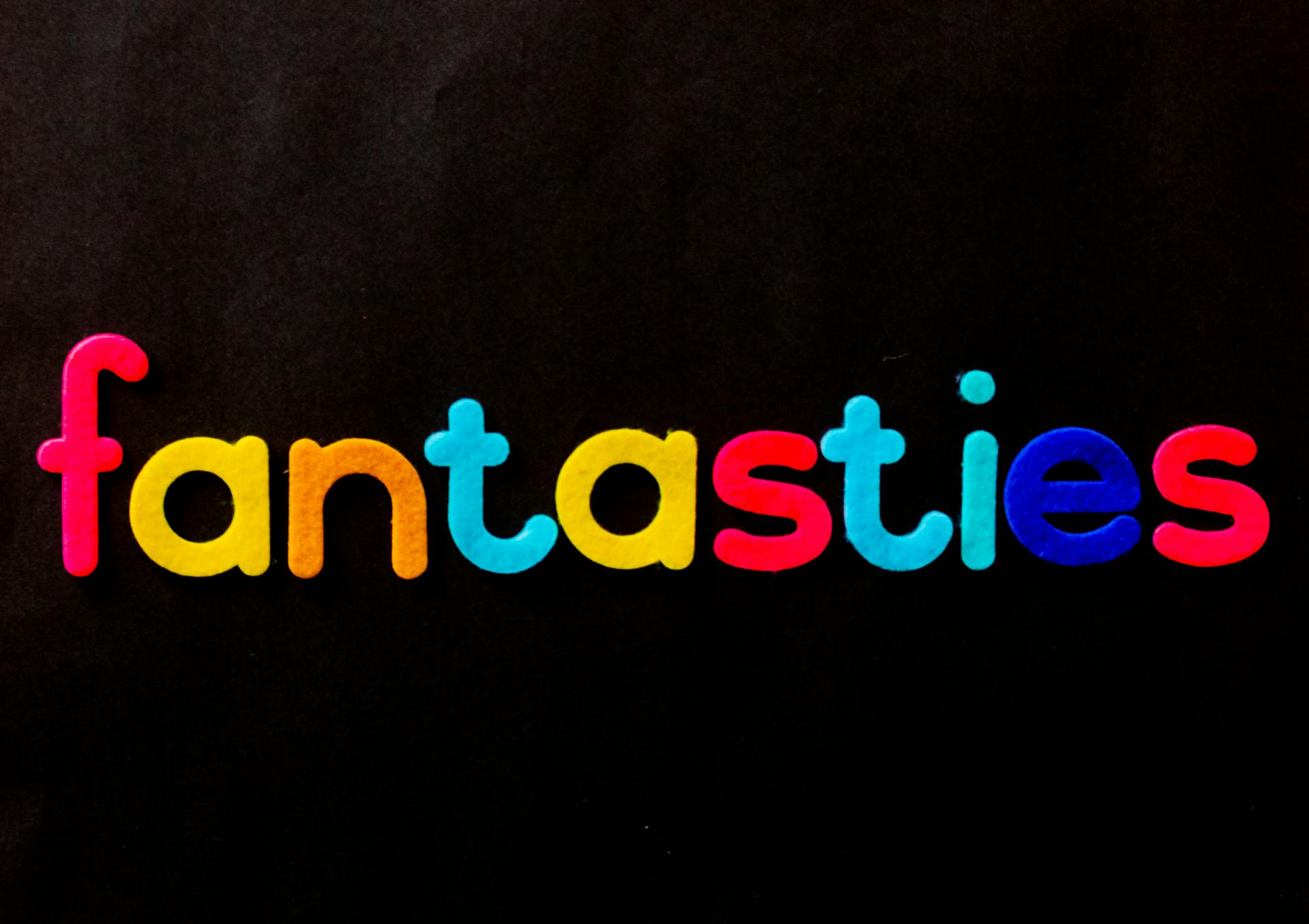
Formal English is the kind of language we use in professional settings, academic environments, or any other situation where we want to sound polite and respectful. However, many people find it challenging to speak formal English because they don't know the right words to use. That's why in this post, I'll show you some easy alternatives to common English words that can help you communicate more effectively in formal settings.
As a native speaker of English, I understand how difficult it can be to switch from casual conversation to formal communication. But the truth is that speaking formal English doesn't have to be hard. You can achieve it by simply making a few changes to the words you use every day. By incorporating these formal alternatives into your vocabulary, you can easily speak formal English with confidence and clarity.
How Using Formal English Can Benefit You

Mastering formal English is a crucial skill that can bring numerous benefits. Creating wonderful first impressions, impressing your in-laws, and communicating confidently and diplomatically are just some of the advantages of using formal language skills. Speaking politely and firmly will surely impress anyone around you.
Furthermore, in professional settings or networking events, formal English makes you stand out from the crowd. It automatically improves your writing skills for work emails, cover letters, reports, and other types of written communication that require formal English skills. As an advanced learner of English, mastering formal English can make valuable connections in your personal and professional life.
In conclusion, whether you're a native or non-native English speaker, using formal English is a must-have skill that will benefit you in many ways. By mastering this skill, you can make great first impressions, communicate diplomatically with confidence and speak politely with authority. Additionally, it will help improve your writing skills for work emails, cover letters and reports where formal language is required. Don't hesitate to learn this essential tool that can help advance your career and personal relationships!
Formal Informal Words Image 2
In the world of communication, it's important to know what kind of language is appropriate for different situations. Formal English is a way of speaking and writing that is used in professional or academic settings. It's important to understand the difference between formal and informal words, so that you can communicate effectively in any situation.
Some common examples of formal words include "therefore," "however," and "moreover." These words are often used in academic writing or business presentations to convey a sense of professionalism and authority. In contrast, informal words like "so," "but," and "also" are more commonly used in everyday conversation.
It's important to remember that using formal language doesn't necessarily mean using complicated or obscure vocabulary. Rather, it's about choosing the right words to convey your message clearly and effectively. By understanding the difference between formal and informal language, you can communicate with confidence in any situation.
Informal Formal Vocabulary Image 6

Have you ever found yourself in a situation where you needed to sound more formal but didn't know the right words to use? Well, worry no more! There are plenty of resources available online that can help you learn the right words and phrases to use in formal situations. One such resource is the "learn 200 synonyms words list" which can greatly improve your vocabulary.
Using appropriate language is necessary when communicating professionally. Many people often struggle with using formal language because they are used to speaking informally. However, by learning new synonyms and phrases, one can easily switch between informal and formal language as per requirement.
Image 6 provides an example of how informal language can be transformed into formal language just by swapping out certain words. By using the "learn 200 synonyms words list" one can easily make their writing and speech sound more professional and sophisticated. So why not give it a try and see how your communication skills improve?
Enhance Your English Skills With These Engaging Lessons!
Improving your formal English skills is essential if you want to succeed in the business world. Luckily, there are many resources available online to help you enhance your communication abilities. For example, you can watch team - business English videos that cover topics like receiving feedback and describing trends. These videos provide practical advice and helpful examples that you can use in your own professional conversations.
Another way to improve your formal English skills is by learning common business phrases and idioms through video tutorials. You can find over 24 phrasal verbs presented in a business - video format, as well as lessons on describing business strategy using advanced English vocabulary. These videos are engaging and informative, providing valuable insights into how to speak confidently and effectively in the workplace.
In addition to speaking fluently, writing proper emails, essays, and reports is also crucial for career success. With a wide range of English - video lessons available for learners of all levels, you can learn everything from basic phone - listening lesson A1-A2 skills to advanced IELTS writing grammar score techniques. By improving your understanding of complex sentences, punctuation rules, and linking words/phrases – among other topics – you will be able to communicate more clearly and persuasively in any setting!
Discover the Power of Formal and Informal Words with Image 1

Are you struggling to communicate effectively in English? One critical aspect of the language is knowing when to use formal or informal words. The type of language you use can significantly impact how your message is received by your audience.
Formal words are typically used in professional settings, such as business meetings or academic presentations. They are considered polite and respectful and are often used to convey a sense of authority or expertise. Informal words, on the other hand, are more relaxed and casual, typically used in social situations or among friends and family.
Using the right type of language can make all the difference when it comes to getting your message across clearly and effectively. So whether you're preparing for a job interview, writing an academic paper or simply trying to improve your communication skills, take some time to learn about formal and informal words, their power, and when it's appropriate to use them.
Discover the Power of Formal and Informal Words with Image 5

Formal English is a style of language that is used in situations where it is important to sound professional, educated, or serious. This type of language is often used in academic or business settings, and it can help to convey an air of authority and credibility. Formal English uses more complex sentence structures, a wider vocabulary range, and avoids using contractions or slang.
On the other hand, informal English is used in casual settings among friends and family members. It's characterized by simpler sentence structures, colloquial expressions, contractions and slang words. If you're looking for an informal words list or informal vocabulary examples, there are plenty available online.
It's important to understand the difference between formal and informal language because they have different purposes. Knowing when to use formal language versus informal language will help you communicate effectively with different audiences. Whether you're writing a research paper or sending an email to your boss, choosing the appropriate language style will help you achieve your desired outcome.
Informal Formal Words Image 3

Have you ever found yourself in a situation where you had to write an email or prepare a report but didn't know which words to use? Well, worry no more. Formal English is the solution. This type of language is used in professional settings such as business meetings and official documents.
In addition to its professional tone, formal English is characterized by the use of complex words and sophisticated sentence structures. For instance, instead of saying "I have some extra work today," you can say "Additionally, I have supplementary tasks that require my attention." By using such words, you convey your message clearly while showing that you are well-informed and competent.
Additionally, it's important to note that the use of formal English doesn't mean that you have to be stiff or robotic in your writing or speech. You can still express your ideas creatively while following the rules of formal language. Moreover, using formal English shows respect towards your audience and demonstrates your commitment to professionalism. Therefore, whether you're writing a cover letter or making a presentation, always strive to use formal language for maximum impact.
The Difference Between Formal and Informal Words Explained
Formal language is often used in professional settings, such as interviews or business meetings. It's a bit like formal dress - it's the appropriate attire for certain situations. When you choose words from your vocabulary, it's important to consider if they are formal or informal. Formal language uses respectful words, while informal language relies on friends' colloquialisms.
In contrast, informal language is more relaxed and casual. It's what we use when chatting with friends in our circle. We tend to use more slang and less respectful words when speaking informally. For example, "What's up?" is an informal word we would say to our friends, but not to a potential employer.
To help you understand the difference between formal and informal words, here is a related list of some common examples: formal words include "utilize" instead of "use", "terminate" instead of "end", or "proceed" instead of "go". On the other hand, informal words include phrases like "gonna" instead of "going to", or "wanna" for "want to." By choosing the right level of formality for each situation with vocabulary words, you can communicate effectively and make a good impression.
Frequently Asked Questions
Can you use contractions and abbreviations in informal writing?
Yes, you can use contractions and abbreviations in informal writing as they help to convey a casual tone and make the text easier to read. However, it is important to consider your audience and the context of your writing before using them.
Should you use formal or polite English?
It depends on the situation and the audience. Formal English is typically used in professional or academic settings, while polite English is often used in social situations. It's important to consider your audience and the tone you want to convey before choosing which style to use.
How to use grammar to sound more polite and respectful?
Using proper grammar, such as using polite forms of verbs and avoiding slang or informal language, can help you sound more respectful when speaking or writing. Additionally, using words and phrases like "please," "thank you," and "excuse me" can also convey politeness and respectfulness.
What is a Hollywood content licensing company?
A Hollywood content licensing company is a business that acquires the rights to use and distribute film, television, music, and other forms of entertainment content for various purposes such as streaming, broadcasting, or merchandising. These companies play a significant role in the entertainment industry by providing a platform for creators to monetize their work and expanding their reach to different audiences.
How many formal and informal words are there in English?
There is no exact number of formal and informal words in English as new words are constantly being added to both categories. However, it's important to use appropriate language depending on the situation and audience to effectively communicate your message.
Featured Images: pexels.com